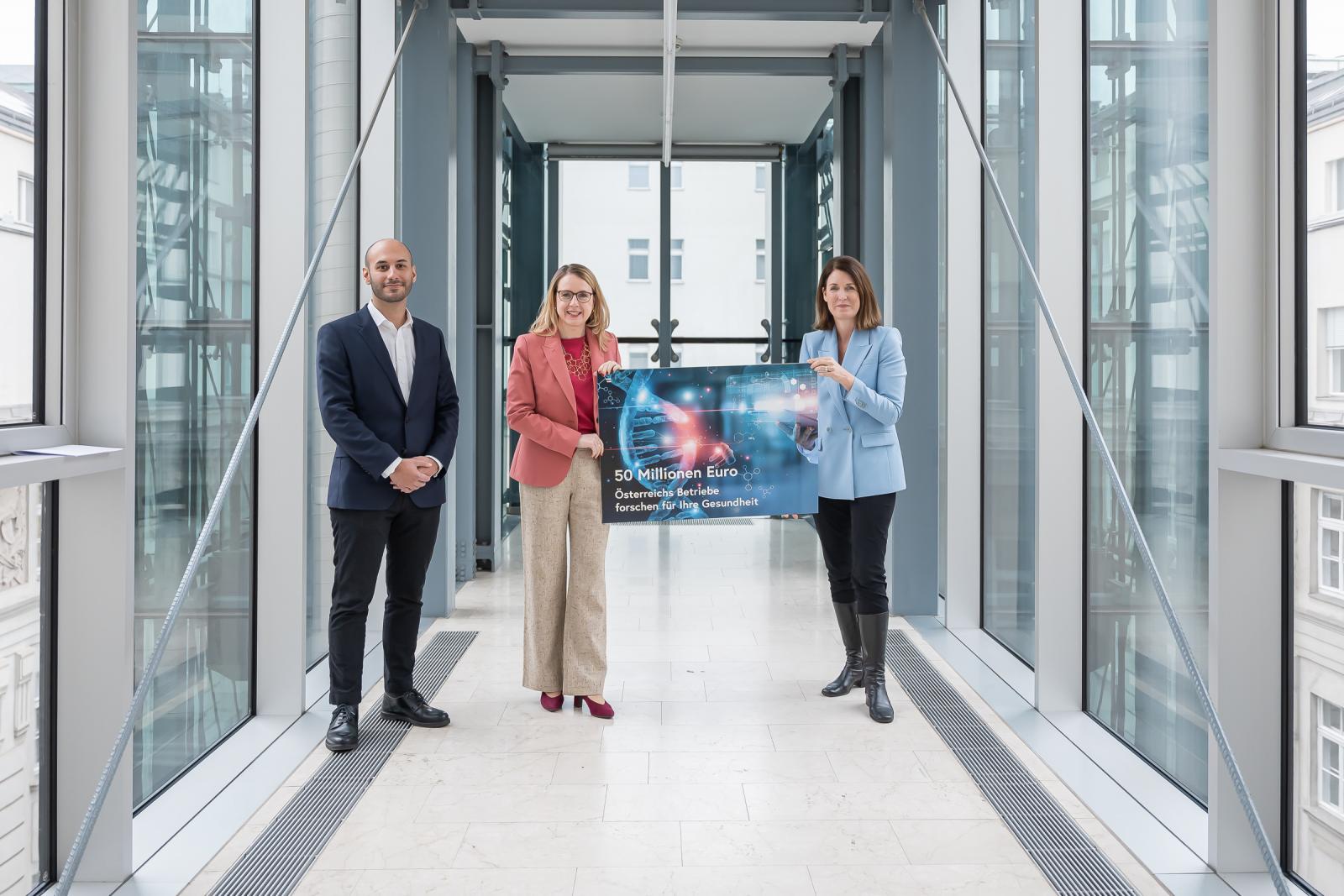Schramböck: 50 million euro investment package for Austria’s pharmaceutical sector
FFG to implement programme worth 50 million euros – Austrian companies conducting research for Austrian healthcare
Economics Minister Margarete Schramböck presented a new investment package for Austria's pharmaceutical sector on 31 March 2022 together with the FFG Managing Director Henrietta Egerth and Guido Gualdoni, CEO of Vienna-based start-up G.ST Antivirals. With a budget of 50 million euros, this is the largest life sciences funding package ever made available by the Ministry for Economics. “Austria is an excellent location for life sciences with its international research and an ever-growing business landscape. The life sciences sector generates seven percent of GDP, making a considerable contribution to the national gross value added and is responsible for over 60,000 highly qualified jobs,” says Economics Minister Margarete Schramböck. Compared to other sectors, the sector is among the most innovative with a research rate of 20.5%. Start-ups and small and medium-sized companies (SMEs) in the biotech field often have research rates of around 70%.

Economics Minister Margarete Schramböck, FFG Managing Director Henrietta Egerth, G.ST Antivirals Managing Director Guido Gualdoni
Photocredit: BMDW
“The life sciences sector is a key contributor to Austria’s status as a centre of business and innovation. In order to ensure the security of supply of quality medicines in Austria and Europe, the relevant investments must be made now. We are therefore investing 50 million euros in Austria’s pharmaceutical sector,” says Schramböck. The Austrian Life Sciences programme will be implemented by the Austrian Research Promotion Agency (FFG) and comprises tailor-made formats covering the entire development cycle. This ensures that funding gaps are closed and the portfolio is expanded in the field of industrial research and clinical trials. They key focal points centre around the fields of medicines, medical devices, digitalisation and production processes. The package also includes funding options for clinical trials by companies.
“The challenges facing the life sciences sector are enormous. Virtually no other sector has longer development times, a higher development risk and such stringent regulatory specifications. It is therefore all the more important that we can support these companies in their research and development plans with a specific life sciences focus,” says FFG Managing Director Henrietta Egerth. With its Austrian Life Sciences funding programme, the FFG is making a key contribution to Austria’s attractiveness as a centre for life sciences and pharmaceuticals. The first call will be launched on 1 April 2022.
Over the last few years, the life sciences sector has proven to be a real driving force in the growth of Austria as a centre for business and research. One company example is G.ST Antivirals – a Vienna-based start-up which is undertaking research into new treatments for viral infections. “Nine years – that’s the time we spent researching the mechanism behind our treatment before we founded G.ST Antivirals. Now, after a further three years of development, we are starting the first clinical trial of our medication and have reached a big milestone”, says G.ST Antivirals Co-founder and CEO Guido Gualdoni. He continues, “Biotech development is very cost-intensive, work-intensive and requires great patience. It gives us great pleasure that there is significant interest from public authorities to fund drug research and innovation in this key field”.
Contact

